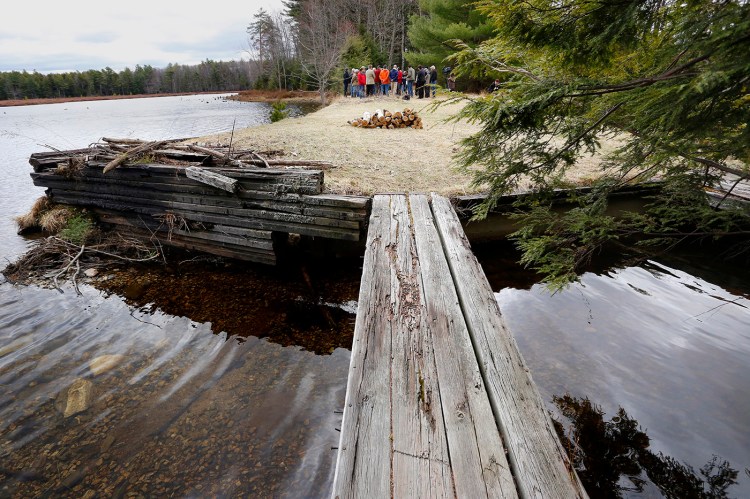AUGUSTA – Lawmakers began the process of reauthorizing $6.5 million in bonds for the Land for Maine’s Future program Wednesday, signaling the potential end of a nearly yearlong stalemate that has delayed progress on dozens of land conservation projects.
In one of its first actions of the year, the Maine House voted to recall a bill, L.D. 1454, that was passed late in the 2015 legislative session but was still awaiting action by Gov. Paul LePage. Under an agreement between Democrats and Republicans, lawmakers plan to strip out aspects of the bill that LePage opposed and turn it into a straightforward, five-year reauthorization of $6.5 million in unissued bonds that expired last year.
The Senate is expected to take up the issue Thursday, and LePage’s office indicated he was still amenable to reviving the bonds.
“This is more than a compromise. This is an agreement about moving LMF forward,” said Rep. Jeff McCabe, a Skowhegan Democrat and House majority leader. “There’s a number of projects around the state of Maine that are hanging in the wind. The uncertainty around the LMF program has been devastating to conservation.”
Minority Leader Rep. Kenneth Fredette, R-Newport, sponsored the original bill and worked with McCabe on Wednesday’s compromise.
The wild card is LePage, who has been attempting to use the voter-approved land conservation bonds as political leverage with lawmakers since last spring. LePage wants to divert revenues from timber harvesting on state-owned lands into a home heating assistance program, but those proposals have fallen flat in the Legislature because of restrictions on use of those revenues.
Last month, LePage reversed course and announced plans to sell $5 million in LMF bonds that are still active. He also indicated in a letter to Maine Treasurer Terry Hayes that he intended to issue the $6.5 million in expired bonds if they were reauthorized by the Legislature.
Yet in a separate letter to legislative leaders, LePage ripped lawmakers for opposing his proposal to tap into the state’s timber revenues and reiterated his much-disputed statements that land conservation projects largely benefit the wealthy and environmental organizations.
“You are content to watch seniors and other poor Mainers freezing in their homes while you cater to special interests so the rich can enjoy walking trails and scenic views funded by the taxes of the very people you refused to help,” LePage wrote to House Speaker Mark Eves, D-North Berwick, and Senate President Mike Thibodeau, R-Winterport, on Dec. 14.
LePage was expected to veto the current version of the bill because it would have required the governor to issue the bonds approved by voters in 2010, although that language became moot when the bonds expired in November. That language, which was added by McCabe last year, will be removed from the revised bill.
The governor’s spokeswoman, Adrienne Bennett, said the governor would review the new version when it reaches his desk but added “the devil is in the details.” She pointed out that LePage sponsored a bill to reauthorize the bonds last year.
“He had been supportive of reauthorization before the additional amendments were tacked on there,” Bennett said.
Members of several conservation organizations said Wednesday that they were pleased with the movement on the bond reauthorization.
McCabe said he has received “positive feedback” from LePage administration officials about recalling and amending the bill. Asked whether he has received any assurances, however, McCabe replied: “My experience to date in dealing with this governor is you never have any assurance from the governor. You never have a deal until after it’s actually happened.”
Started in 1987, Land for Maine’s Future has helped conserve more than 500,000 acres of working forests, farmland and commercial working waterfronts through land sales or conservation easements. Project applicants must match every dollar from the state with private or federal money, and all conservation land projects also must provide access to the public for recreational activities such as hiking, hunting or fishing.
The program has enjoyed broad public support at the ballot box over the years.
Send questions/comments to the editors.



